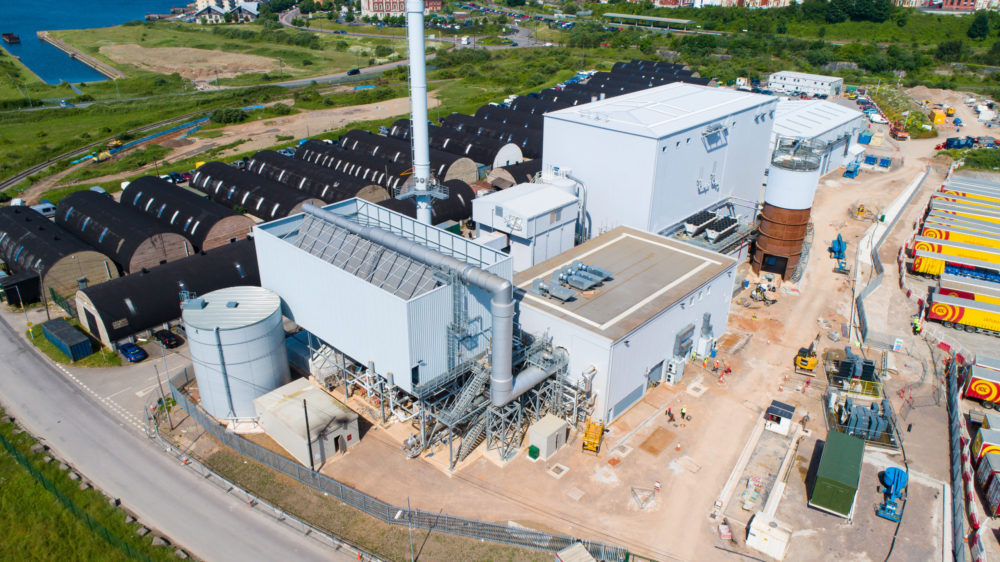Future of Barry incinerator project thrown into doubt

Ted Peskett, local democracy reporter
An investment company behind a controversial incinerator in Barry could be set to withdraw from its incinerator projects across the UK, a media report has claimed.
The Guardian reported that Aviva Investors had lost £350m on investments in three incinerator energy plants and that it was about to put all of them, including the one on Hood Road in Barry, into administration.
Vale of Glamorgan Council has been in a long running planning dispute with Barry Biomass UK No.2 Ltd which runs the Barry plant.
Barry Biomass was served with an enforcement notice in 2021 because there were discrepancies with the site and the plans that were approved for it in 2015.
However, the company appealed the notice to Planning and Environment Decisions Wales (PEDW) and in August, 2023, it was quashed.
Notes
The leader of Vale of Glamorgan Council, Cllr Lis Burnett, said: “The council notes with interest reports in the media that Aviva might withdraw from the waste gasification sector and the consequences that may have for its plant in Barry.
“We are very much aware of the strength of local feeling regarding this development, which is something we have always been mindful of.
“We continue to closely monitor the situation as we seek clarification regarding the exact position and will provide further comment should a definitive announcement be made.”
Vale of Glamorgan Council’s planning committee rejected retrospective planning applications for the incinerator this year.
However, the final decisions on the applications rest with the Welsh Government.
‘Angry’
Plaid Cymru councillor for Baruc, Cllr Mark Hooper, said: “Although Aviva are apparently putting the site into administration, having lost more than £350m on this and two other similar plants in England, the incinerator has now been built and there is the potential for another company to pick up where they have left off.
“Residents are angry that this project has got to where it is – they feel ignored and let down. It represents just another example of Government, at various levels, acting over the head of the local populations
“Welsh Government should now end this whole sorry saga by refusing the plans and removing the cloud that has long been over this development.”
The Barry Biomass website states that the plant heats waste wood chip at a high temperature to power a steam turbine and produce electricity.
It adds that the renewable electricity produced, 10MWe, would be enough to power 27,000 homes.
Planning committee members rejected the incinerator application this year because they felt it failed to demonstrate that the plant would not have an adverse environmental impact.
The two other incinerators that Aviva Investors invested in are located in Hull and Boston, Lincolnshire.
Wrong location
The leader of the Palid Cymru group at Vale of Glamorgan Council, Cllr Ian Johnson, said: “Plaid Cymru has consistently opposed the Barry Docks Incinerator for more than sixteen years, since 2008.
“We argued that this was the wrong location, in the centre of Barry, close to schools and houses, and that the technology was unsuitable, as there are greener, better ways of generating energy.
“Welsh Government should have stepped in much earlier and told them that this plant was unacceptable.”
Two planning appeals relating to the Barry incinerator remain active and a Welsh Government spokesperson said the decisions on these will be “communicated in due course”.
The spokesperson added that it would be inappropriate to comment further whilst the appeals process was ongoing.
Aviva Investors has been approached for a comment.
Support our Nation today
For the price of a cup of coffee a month you can help us create an independent, not-for-profit, national news service for the people of Wales, by the people of Wales.





Should Nation.Cymru take a syndicated report from Peskett? He’s not “local” but places the incinerator wrongly (Hood Rd, quite the other end of Barry town). He quotes Plaid politicians (x2) but no local people who campaigned to end the monstrous incinerator from years before he took up journalism.